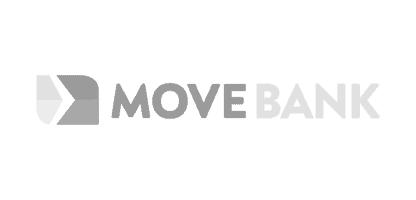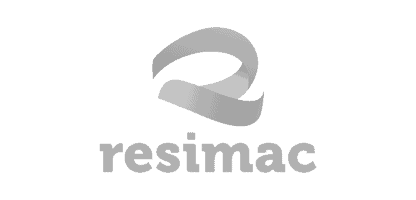Owning a home is a dream for many, but what about home loans for self-employed individuals? That dream shouldn’t be limited to those who work traditional nine-to-five jobs.
If you are self-employed and looking to buy a home, you may face some additional challenges compared to standard borrowers. But there are options available for you.
In this comprehensive guide, we will explore everything you need to know about home loans for self-employed borrowers.
Can You Get a Home Loan If You’re Self-Employed?
The answer is yes; you can get a home loan if you are self-employed. However, the lending criteria may be stricter compared to those for traditional borrowers. Lenders want to assess a borrower’s:
- Financial stability
- Income
- Savings
- Assets
- Capacity to repay the loan
As a self-employed individual, your business’s financial position may also be taken into consideration. Factors such as the length of time you have owned your business and its performance over time can impact the lender’s perception of your risk profile.
Typically, lenders may view self-employed individuals who have been running their own businesses and earning a stable income for several years as less risky compared to those who have only recently started their entrepreneurial journey.
Note: The perceived level of risk can affect the approval process and the conditions imposed by the lender, such as a higher deposit or higher interest rate requirement.
Documents for a Self-Employed Home Loans
Every lender has its own set of requirements for home loan applicants. While some documents, such as identification and information about assets and liabilities, are generally required by all lenders, self-employed borrowers may need to provide additional documentation to give lenders a clear picture of their financial position.
Here are some documents that lenders may ask for:
- One to two years’ worth of business tax returns
- Two years’ worth of personal tax returns
- The most recent notice of assessment from the Australian Tax Office (ATO)
- Two years’ worth of bank and financial statements from your business
If your business is less than two years old or if you don’t have the aforementioned documentation, lenders may ask for alternative proof of your financial position, such as:
- Proof of Australian Business Number (ABN) and Goods and Services Tax (GST) registration for your business
- Six to twelve months’ worth of Business Activity Statements (BAS)
- Tax returns older than two years
- A letter from an accountant who can verify your financial position
Although this gives you a brief overview of what to expect, each lender may have specific requirements, so you’ll want to check with your chosen bank or lender for their specific documentation needs.
Low Doc vs. Full Doc Home Loans
Depending on how much documentation you can provide, there are different types of loans available to you as a self-employed individual.
A “full doc” or full documentation loan requires borrowers to provide a standard set of supporting documents as evidence of their income. On the other hand, a “low doc” or low documentation loan may be more suitable for self-employed individuals who can’t provide standard documents like PAYG payslips.
One key difference between these two loan types is the interest rate. Low-doc loans, which are often sought by self-employed borrowers, may come with higher interest rates compared to full-doc loans.
This higher interest rate reflects the perceived higher risk associated with loans that require less documentation. But you’ll need to carefully consider your options and understand the potential long-term cost of a higher interest rate.
What to Consider When Applying for a Self-Employed Home Loan
When applying for a home loan as a self-employed borrower, there are several factors to be aware of that may impact your loan application and borrowing experience.
Limited Lender Options
While many lenders, including major banks, do offer home loans to self-employed borrowers, you need to be aware that not every lender may be willing to work with self-employed individuals. This means that the range of options available to you for a home loan may be slightly more limited compared to borrowers with traditional employment and income documentation.
Higher Interest Rates
As previously mentioned, lenders may offer different loan products to different types of borrowers based on their risk assessment. As a self-employed borrower, you may find that some lenders only offer loans with higher interest rates. So, you may end up paying more in the long run for your home loan compared to borrowers with traditional employment.
However, not all lenders follow this practise, and some major banks do offer the same loans to self-employed borrowers as they do to standard borrowers. So, make sure you compare different lenders and loan options to find one that suits your financial needs and offers competitive interest rates.
Higher Deposit Requirements
The loan-to-value ratio (LVR) of a home loan is the proportion of the property value that a lender is willing to approve for a borrower. A lower LVR means that you’ll need a larger deposit to purchase the property. Lenders may be more cautious when assessing self-employed borrowers’ financial situations and may only offer loans with lower LVRs.
So, you may need to save up a higher deposit compared to borrowers with traditional employment and income verification. Additionally, you may be required to pay lender’s mortgage insurance (LMI) to protect the lender in case of default.

How Can a Mortgage Broker Help?
Mortgage brokers offer a distinct advantage for self-employed individuals seeking home loans, because they have access to a broad spectrum of loan products across various lenders – ensuring a fit tailored to unique income structures.
Think of a mortgage broker as your home loan specialist.Their expertise also helps navigate documentation requirements, making the application process smoother.
So, by leveraging their industry insights, they can pinpoint lenders more likely to approve applications from self-employed borrowers, often securing competitive rates in the process.
Key Takeaways
As a self-employed individual, you can obtain a home loan, although the lending criteria may be more stringent. Lenders will assess your financial position, income stability, and business performance to determine your eligibility for a loan. Providing the necessary documentation, such as tax returns, bank statements, and business activity statements, is crucial in the application process.
Make sure to shop around and compare different lenders to find the best loan options suited to your needs. While some lenders may offer loans with higher interest rates or require larger deposits from self-employed borrowers, others may provide the same loan products as they do for standard borrowers.
Homeownership is attainable for self-employed individuals, and with the right preparation and guidance, you can make your dream of owning a home a reality.
If you would like to enquire about applying for a self-employed home loan with the help of a mortgage broker, contact The Mortgage Agency today.
FAQs
What Are Principal and Interest Repayments?
Principal and interest home loan repayments involve paying back both the borrowed amount (principal) and the interest accrued on that amount over the loan terms. So, while interest-only repayments only cover the interest accrued, principal and interest repayments reduce both the interest and the original loan amount.
What Is Lenders Mortgage Insurance (LMI)?
LMI is a one-off insurance payment which protects lenders against the potential loss they might incur if a borrower defaults on their loan. LMI is often required when a borrower has a deposit that is less than 20% of the property’s purchase price.
Does LMI Protect the Borrower or the Lender?
While the borrower pays for LMI, it primarily protects the lender, not the borrower.
What Is the Difference Between Fixed Rate and Variable Rate Home Loans?
Fixed rate home loans have a set interest rate for a specified period, ensuring consistent repayments. In contrast, a standard variable rate loans can fluctuate based on market conditions.
